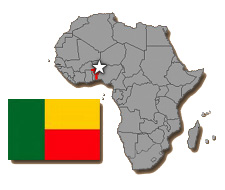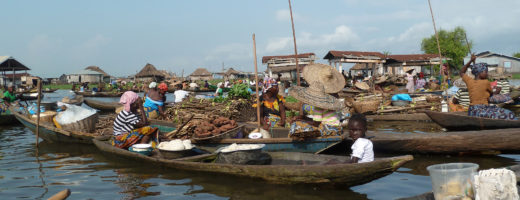Benin has suffered the historic fate of being a major slave trade center in the 19th century as well as a victim of French imperialism from 1892 to 1960. After independence there was warfare between competing tribes for power which destabilized the country, becoming a Marxist country for 20 years, in the 1970s and 80s. More recently, with acceptable elections, the country seems stabilized. But there is much recovery to be made. The literacy rate in Benin is among the lowest in the world: in 2002 it was estimated to be 34.7%. Same-sex sexual acts are recently legal in Benin but this does not mean that they are approved by the general population. This story is in four parts.
The economy of Benin remains underdeveloped and dependent on subsistence agriculture, cotton production, and regional trade. Growth in real output has averaged around 5% in the past seven years, but rapid population growth has offset much of this increase.
In Benin male/male and female/female sexual contact is Illegal. Accorig to Penal Code of 1996: “Anyone who commits an indecent act or an act against nature with an individual of the same sex will be punished with 1 to 3 years prison and a fine of 100,000 to 500,000 francs.”
According to the 2006 Demographic and Health Survey, Benin has a generalized HIV epidemic, with 1.2 percent of the adult population estimated to be HIV positive. However, concentrated HIV epidemics also exist among at-risk populations, particularly sex workers and their clients, MSM, truck drivers, blood donors, young people, and tuberculosis patients.

No photo galleries available.

